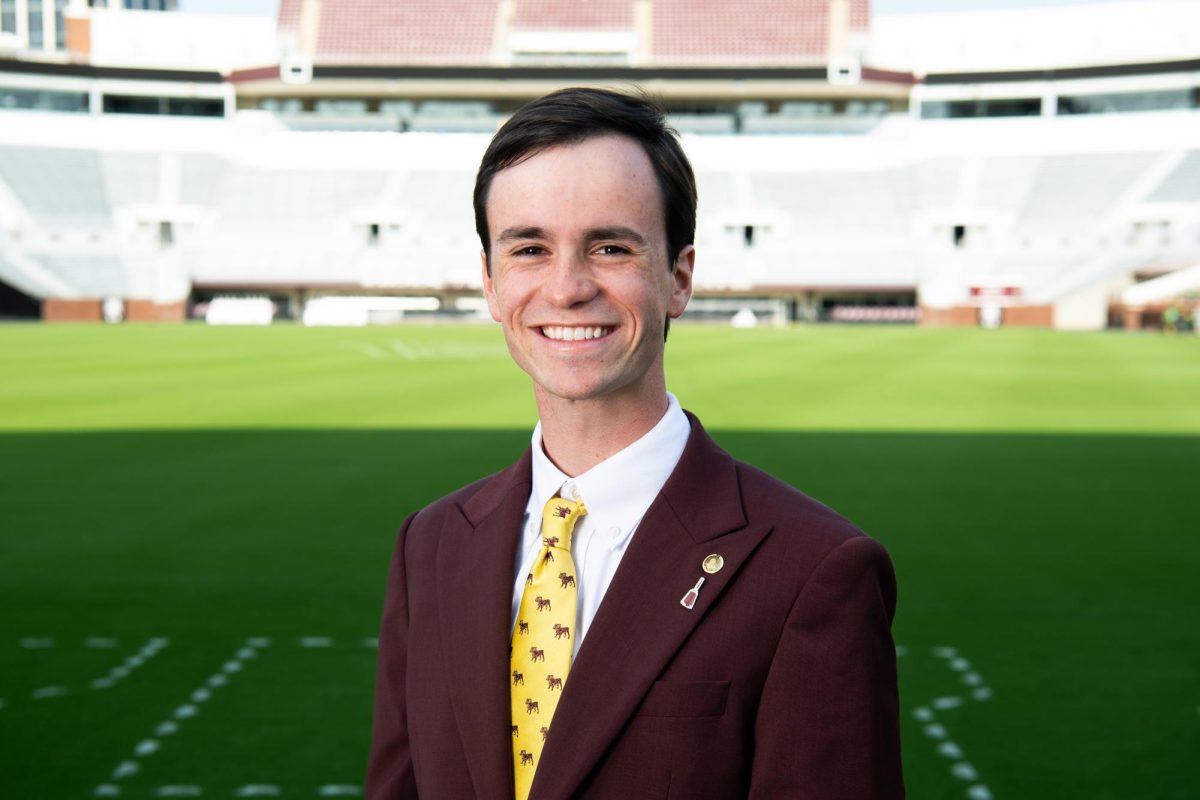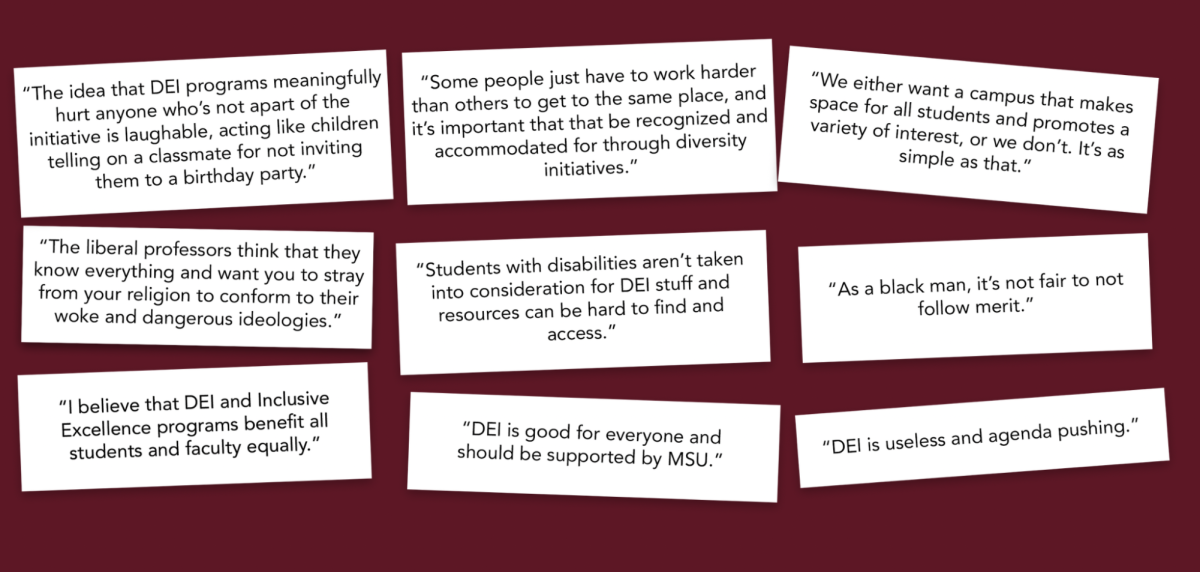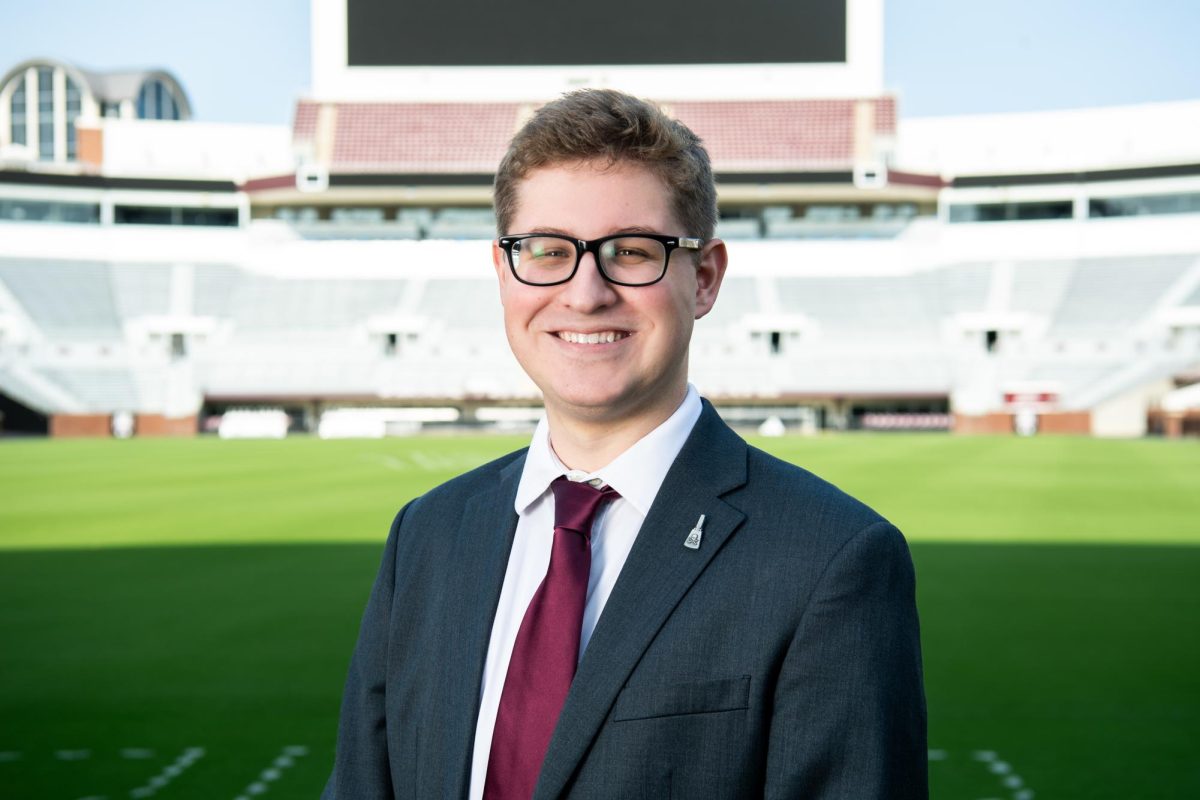If you knew the opportunity to save someone’s life would be as simple as swabbing your mouth, would you do it?
Be The Match Registry, a nonprofit worldwide leader in bone marrow transplantation, provides this opportunity through its “Banding Together” initiative with the Mississippi State University Famous Maroon Band, and other college bands around the nation.
For the past three years, the Famous Maroon Band has been a part of this campaign to increase the number of donors on the National Bone Marrow Registry. The drive is held each fall to give new band members a chance to register with Be The Match.
Tucker Haney, a senior business economics major from Forrest City, Arkansas, recently matched with someone in need of a donation. Haney, who has played the tuba in the band for four years, did not hesitate to go through the process of having his stem cells, or blood-making organs, donated.
Haney said the process of signing up was easy for him to do. He said all he had to do was fill out some paperwork and have his mouth swabbed to check his DNA for a potential match. After a year of being on the registry, Haney received a call asking him if he would be willing to donate.
“Last fall semester, I got a call saying that I was a match and they wanted to do further testing to see if I was a closer match,” Haney said. “I went in for blood work and stuff like that, and they came back and said that I was the best match.”
Mary LeSueur, the Be The Match representative for Mississippi, Tennessee and Arkansas, has worked closely with the Famous Maroon Band over the last several years. She said she has been a part of Be The Match for 22 years, and what started as a job, has now become her mission.
“It’s made such a difference in the lives of so many people,” LeSueur passionately said. “I realized that the challenge is finding that perfect match or that good match. I just see myself as one of many who do what I do as a voice of those patients who obviously can’t advocate on their own.”
Three years ago, the band directors from the Famous Maroon Band attended the Summer Conference of the College Band Directors National Association where they heard a presentation given by a Be The Match representative. After learning about the Be The Match mission to “Band Together,” the directors contacted Be The Match to find out how to get involved.
Craig Aarhus, associate director of bands at MSU, said when he heard the best ages for donors were typically 18-44, he knew the Famous Maroon Band would be able to help.
Every fall since the conference, the directors have organized a bone marrow drive to give students an opportunity to register for the drive. Within the past three years, over 300 people have registered through the band. This year’s drive had 88 members of the band and choir register to be a part of “Banding Together.”
“This is a good and easy way for kids to be a part of something meaningful and really special,” Aarhus said. “It’s not like it takes a whole lot of preparation for us to do. It’s something fairly easy for us to host, so this is something we plan to continue to do every year.”
Aarhus said a big part of being in a band is about service and working with something bigger than yourself. Aarhus said being a part of “Banding Together” fits in with the attitude of helping the community as a whole.
The Famous Maroon Band is a part of the 24 other university bands who are participating in the “Band Together” initiative.
While this initiative started within the band, Aarhus said band students who are in other campus organizations have organized drives for those organizations as well. Aarhus said some band members are actively trying to raise awareness within campus organizations, especially those made up of minority students.
According to the Be The Match website, only 3 percent of white patients will not have a match when trying to get a transplant, while 20 percent of Hispanics and 34 percent of African-Americans will not have a match.
“There is a shortage of potential donors in that pool, and one of our members has recognized that and decided that that was a way that he could help his organization help others as well,” Aarhus said.
LeSueur said many people are hesitant to sign up to be on a registry because they do not understand what happens when donating bone marrow, making education on bone marrow an important part of organizing a drive.
Pam Farris, the nursing manager at the University of Mississippi Medical Center in the bone marrow transplant department said finding the perfect match, or even a close match, can be a hard task.
Farris said finding people who are willing to donate is sometimes difficult because many people are scared to undergo the procedure of having the marrow or stem cells extracted.
Farris said there are two primary methods of donating these cells: peripheral blood stem cell donations and the bone marrow extraction.
In the week leading up to the peripheral blood stem cell donation, the donors will receive injections of filgrastim, a drug which helps boost the number of stem cells the body produces and moves the number of blood-forming cells out into the bloodstream.
On the day of the donation, the donor will have blood removed through a needle in one arm. The blood will then be pumped into a machine to extract the stem cells, and then pump the remaining blood back into the bloodstream through a needle attached to the opposite arm.
The second type of donation is extracting the stem cells from the bone marrow. The donor will arrive at the hospital on the day of the donation, typically in the morning, and be placed under anesthesia for the procedure. For the procedure, the doctors will use special needles to extract the liquid form of the marrow out of the back side of the pelvic bone, where most of the cells are formed.
Farris said both procedures typically have a fast recovery time for the donor. The biggest side effect for donors is usually aching and bruising in the days following the procedure.
Haney, the band member who recently did a peripheral blood stem cell donation, said even though he was a little sore the day after the procedure, he was able to march for the band at a football game the following day.
“The pain wasn’t bad enough for me to not be willing to save someone’s life again,” Haney said. “Yeah, I’m willing to do it.”
Famous Maroon Band ‘Banding Together’ for a cause
0
Donate to The Reflector
Your donation will support the student journalists of Mississippi State University. Your contribution will allow us to purchase equipment and cover our annual website hosting costs.
More to Discover























































































